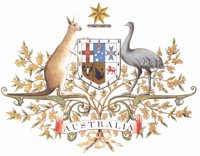Commonwealth
Etymology
The English noun commonwealth in the sense meaning "public welfare; general good or advantage" dates from the fifteenth century. The original phrase "the common-wealth" or "the common weal" (echoed in the modern synonym "public weal") comes from the old meaning of "wealth," which is "well-being." The term literally meant "common well-being". In the seventeenth century the definition of "commonwealth" expanded from its original sense of "public welfare" or "commonweal," to mean "a state in which the supreme power is vested in the people; a republic or democratic state."
The term commonwealth has its root in the complex Latin concept res publica.
- Date: 15th century
Definitions
- a : one founded on law and united by compact or tacit agreement of the people for the common good
- b : one in which supreme authority is vested in the people
- c : republic
- b : protectorate
- 4 : a state of the United States —used officially of Kentucky, Massachusetts, Pennsylvania, and Virginia
- 5 capitalized : a federal union of constituent states —used officially of Australia
- 6 often capitalized : an association of self-governing autonomous states more or less loosely associated in a common allegiance (as to the British crown)
- 7 often capitalized : a political unit having local autonomy but voluntarily united with the United States —used officially of Puerto Rico and of the Northern Mariana Islands
Description
A term first used to describe the ideal state in which the public good was realized. The Cromwellian state, 1649–60, described itself as the Commonwealth. Thomas Hobbes (1588–1679), the political theorist, wrote of the 'common weal', a situation of stable government and agreed values which citizens would accept and defend. The first journal of the Socialist League, founded by William Morris (1834–96) in 1884, was Commonweal. Four of the earliest British American colonies called themselves commonwealths when they became American states. In the case of Massachusetts and Pennsylvania this reflected their Puritan origins.
The term today refers to associations of states. The former British Empire became the Commonwealth after the Statute of Westminster in 1931 declared that the self-governing dominions — Australia, Canada, New Zealand and South Africa — were sovereign under the British Crown. As such, they declared war separately on Germany in 1939. Later members, from India in 1947 onwards, have usually declared themselves republics with presidents; but they have accepted the British sovereign as 'Head of the Commonwealth'. Hence the Commonwealth is a looser association than it was. Another Commonwealth is that of Independent States, founded in 1991 and including all the former Soviet republics except the Baltic states. It remains to be seen how dominated by Russia the CIS will be.
